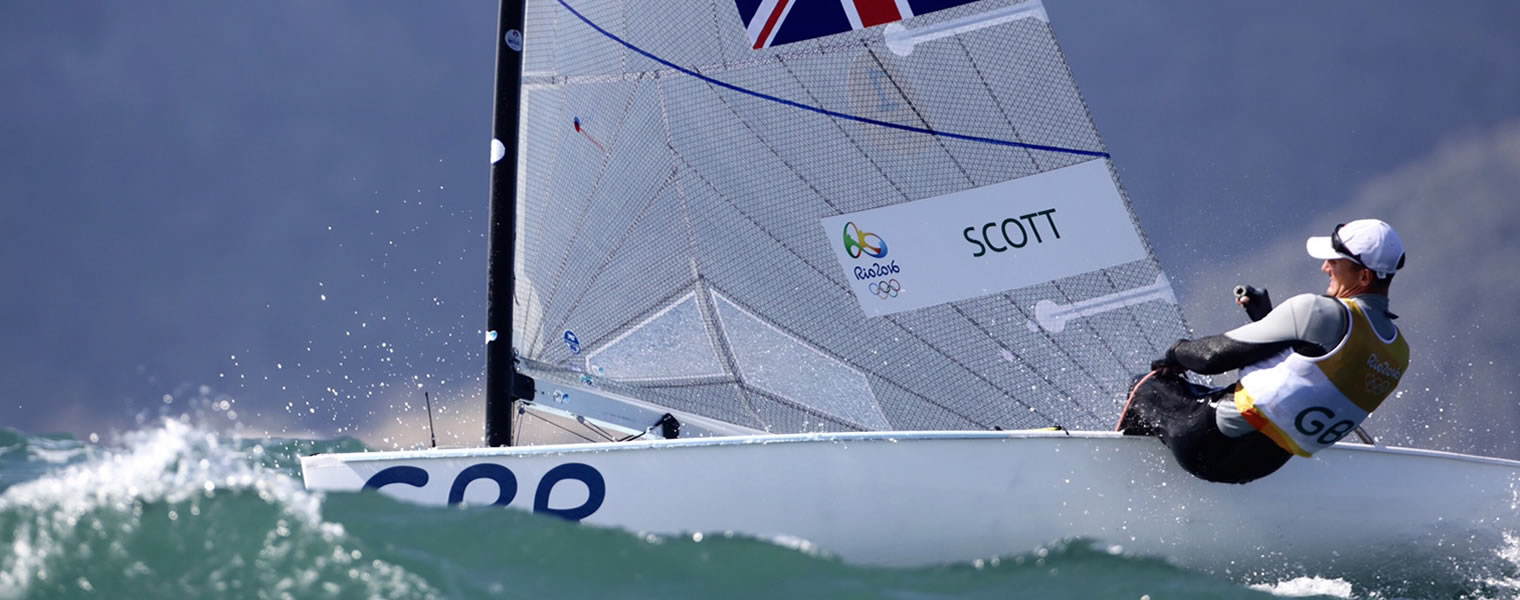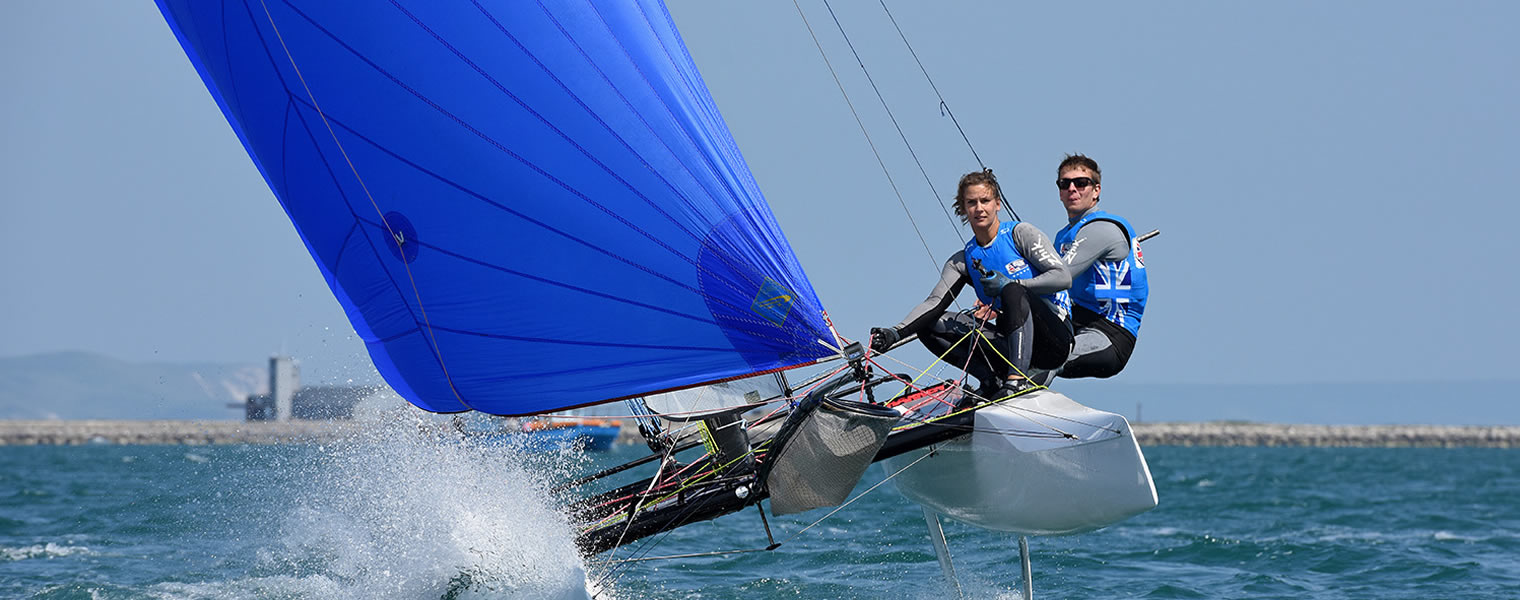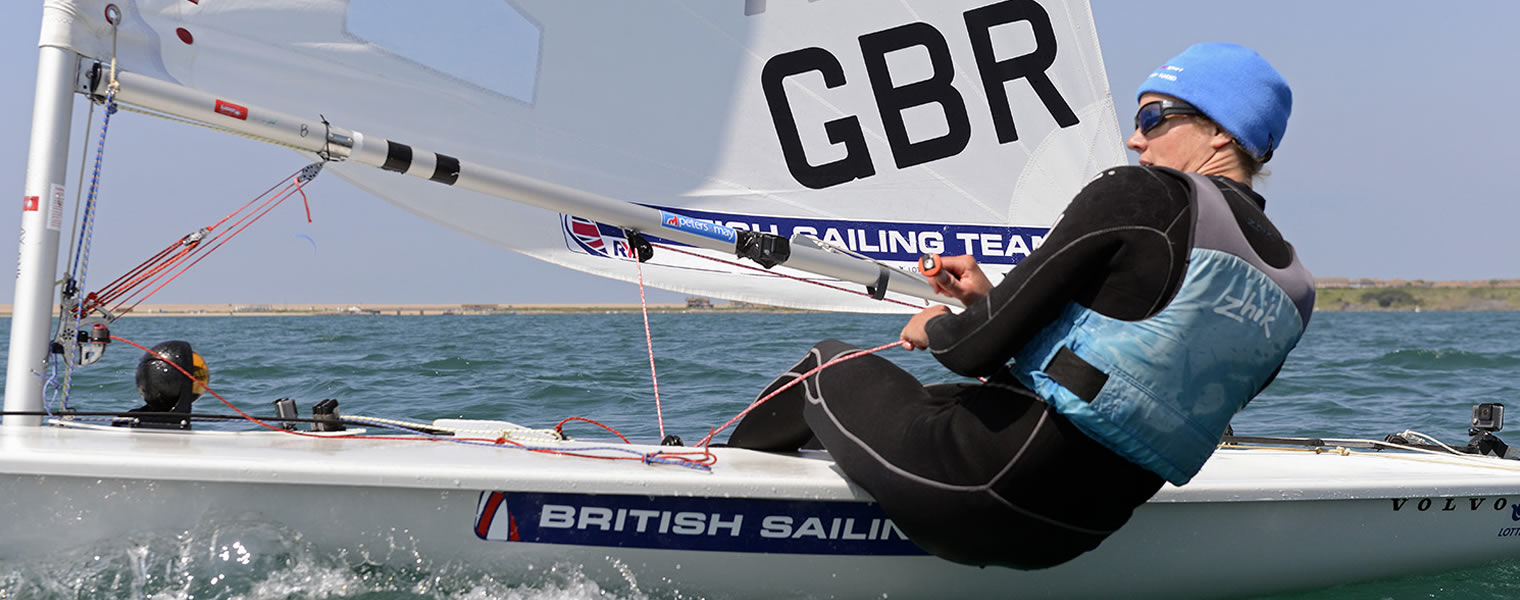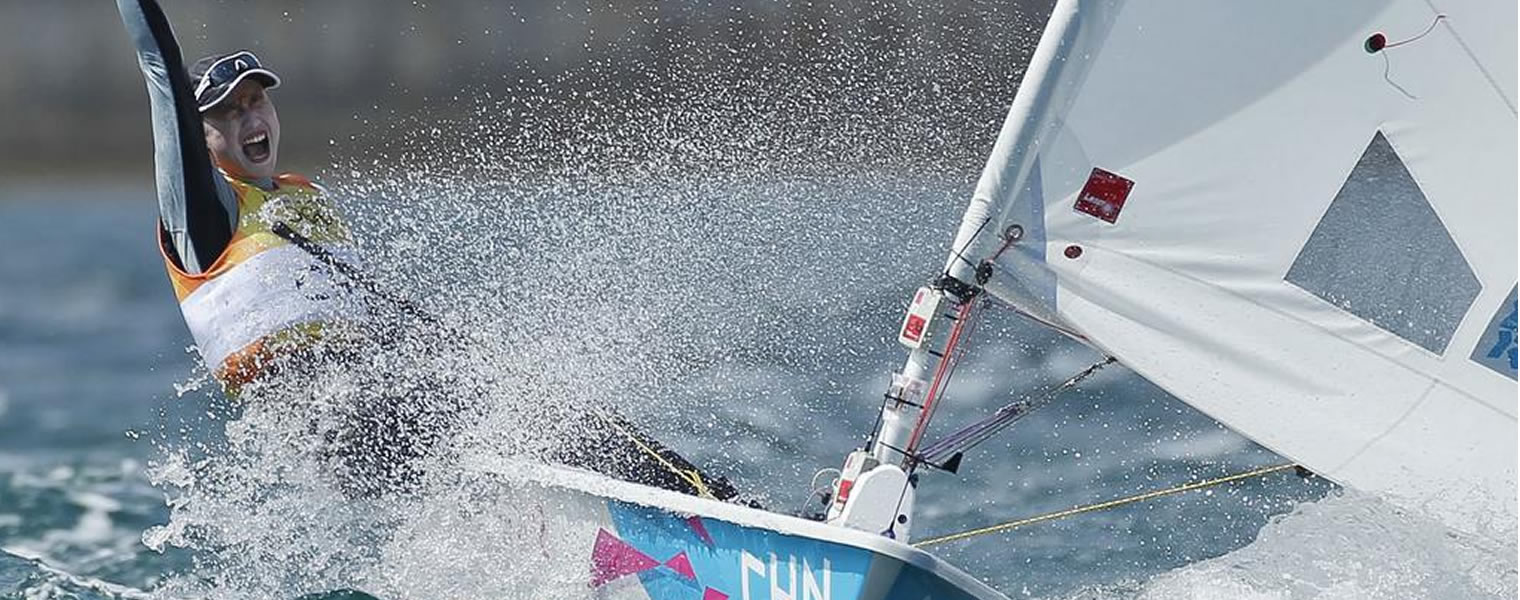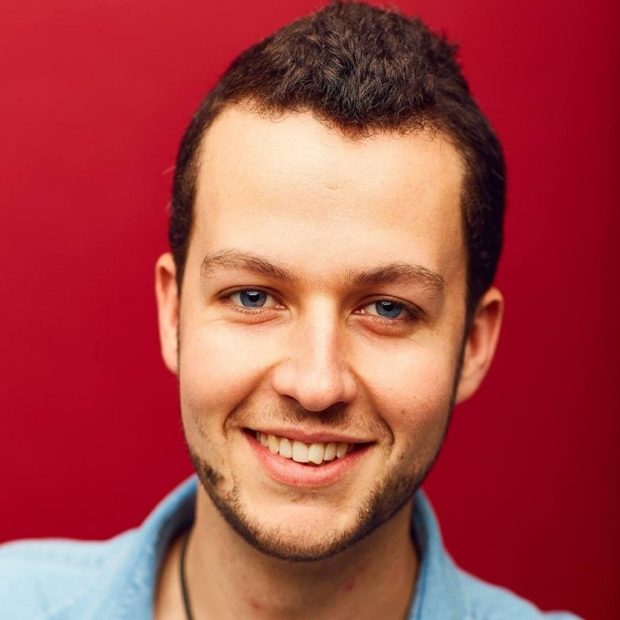Hartley News Online Your alumni and supporter magazine
Southampton graduates have a proud history of Olympic participation and achievement over the last 60 years, with at least one Southampton graduate having competed in each of the summer Games since Seoul in 1988. Five alumni were competing in sailing events at Rio 2016, which means that Southampton graduates have represented Team GB in sailing events for seven consecutive Olympic Games.
Going for gold
A gold medal for Giles Scott (BSc Geography and Geology, 2008) was the standout performance in Rio. Giles was one of the Games’ hot favourites for gold in the build-up, and he did not disappoint. His victory in the Finn heavyweight dinghy class was so convincing that he was able to go into the final double points Medal Race knowing that, providing he successfully competed in the race, he could not be knocked off the top of the podium. Giles’ victory meant that he inherited the Finn title held by the most successful Olympic sailor of all time, Sir Ben Ainslie, while also ensuring that the men’s heavyweight dinghy crown remains in British hands for a fifth successive Games.
Having trained alongside him in the build up to Beijing 2008, pushed him for selection in London 2012, and inherited his Olympic title, Giles will now join Ben Ainslie’s 2017 America’s Cup team.
Olympic debut
Southampton alumnus Ben Saxton (BSc Business Studies 2011) made his Olympic debut in Rio, in the new Nacra 17 catamaran class. Ben and his sailing partner Nicola Groves won the World Cup Regatta in Weymouth in June, supporting their selection for Rio.
It’s a big achievement being selected to represent Britain. Only one boat from each country can enter each class at the Games so we had to beat some very good and more experienced sailors to get there, explained Ben.
Once in Rio, the pair came ninth, but described the Olympic experience as “awesome” and one that has left them wanting more. “I am motivated by a love of the sport, and a raw and simple wish to be the best; I find that very satisfying,” Ben enthused. “The other aspect I love is the racing and campaigning,” he added. “Setting up strategies, tactics, and decision making around the racecourse, over the week-long event as a whole, and over the four-year cycle in order to peak across the final year.”
Ben started sailing at Grafham Water in the Midlands, introduced by his parents who were keen sailors. Sailing has always played an important role in his life and while at Southampton, he and his partner claimed the Handicap fleet victory at the University Championships.
Love of the sport
Alison Young (BSc Civil Engineering, 2008) went to Rio as the reigning Laser Radial World Champion after seizing the crown in Mexico in April 2016, making history en route as the first British woman to win world gold in a solo Olympic dinghy event.
The 29-year-old Southampton alumna finished fifth on her Olympic debut at London 2012, but suffered a setback the following year as she was sidelined from competition through illness for 10 months. She bounced back to secure a place on the team, where she competed against current Southampton student Lily Xu, gold medal-winner at London 2012. Alison finished eighth overall, and while describing her position as disappointing, went out on a high, winning the final medal race. The experience will do nothing to dampen her love of the sport.
I’m just a kid that loves going sailing and stuck at it long enough to get quite good. But I’m also pretty determined and enjoy what I do, she said. Every race is different. Conditions are always changing and being able to challenge yourself mentally and physically every day is something I really enjoy.
Proud moment
Having won the first ever sailing dinghy gold medal for China and Asia at London 2012, Lily was chosen as the flag bearer at the closing ceremony.
On becoming an Olympic champion, I felt very lucky to do something I love; I was also so proud to be chosen as the flag bearer for China in the closing ceremony, Lily reflected. I realised my own dream as well as several generations of the Chinese sailing community. The gold medal made more Chinese people think about trying the sport themselves, and I’m very proud of that.
Unfortunately at Rio, Lily’s chances of a medal in the Laser Radial class ended after her scores were cancelled three times, and she finished in 18th place. She has however said she will “learn from the experience”.
Sailing trailblazer
Like Lily Xiu, Pavlos Kontides (BSc Ship Science, 2013), has been a trailblazer for his sport in his home country. At London 2012, Pavlos won Cyprus’s first ever Olympic medal – a silver in the Laser class sailing. “It is really amazing,” he said after landing his country’s first medal since its Games debut at Moscow 1980.
For me and my country, it is a historic day. I hope my success will serve as a springboard for young people to embrace sport and in particular sailing, he said at the time.
His words proved prophetic, with the number of people holding sailing licences having risen by more than 25 per cent to 400 since he won his Olympic silver.
At Rio 2016, Pavlos led his country into the Maracana Stadium during the opening ceremony, and finished a hard fought seventh place amid stiff competition. The Laser class attracted the largest field of all the sailing events at Rio 2016, with 46 competitors taking to the start line.
Pavlos began his sailing career at the age of nine. He achieved the unique feat of winning back-to-back ISAF Youth World Championship titles in 2007 and 2008. His Olympic debut came while he was still a teenager, at Beijing 2008, where he finished 13th.
Former glory
Given their proximity to the Solent and rich sailing heritage, Southampton alumni have played and continue to play a significant role in Olympic sailing events. However, our alumni have also competed in a diverse range of sports over past Olympics, with some considerable success. Notable achievements include: Sydney 2000 rowing silver medalist Guinevere Batten (BSc Ship Science, 1987), who competed with her sister Miriam (BSc Physiology and Biochemistry, 1987) in the women’s quadruple skulls; Seoul 1988 hockey gold medalist Jon Potter (BA Geography 1986); and Ben Helfgott, a Polish-born economics student in the 1940s who survived the Holocaust and went on to captain the British weightlifting team at the Melbourne 1956 and Rome 1960 Games.
Lily completed her pre-masters at Southampton in 2015 and aims to return to do a masters in international management. After she graduates from Southampton, Lily has further ambitions for sailing. “I’d like to keep sailing and try many different boats: yachts, inshore, offshore, and professional regattas like the Americas Cup and Volvo Round the World Ocean Race,” she said.
